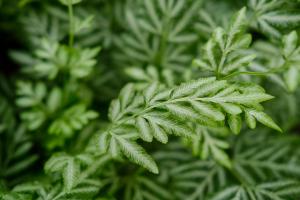Can You Use Gray Water to Water Plants?
Gray water is commonly defined as wastewater generated from household activities such as laundry, bathing, washing dishes, and other non-toilet related activities. Since gray water contains some nutrients and minerals, many gardeners wonder whether they can use it to water their plants.
Is it Safe to Use Gray Water?
The safety of using gray water to water plants is an important consideration. Although gray water may contain some bacteria and chemicals, these are usually not harmful to plants. However, it is important to note that gray water is not safe for human consumption, and it should not be allowed to come into contact with skin or be ingested.
What Are the Benefits of Using Gray Water?
Using gray water to water plants has several benefits. Firstly, it helps to conserve water resources by reducing the amount of potable water used for irrigation. This is especially important in areas where water is scarce. Secondly, gray water contains nutrients such as nitrogen, phosphorus, and potassium that are important for plant growth. Lastly, using gray water to water plants helps to reduce the amount of wastewater that is discharged into the environment.
What Are the Limitations of Using Gray Water?
While there are benefits to using gray water for irrigation, there are also some limitations to consider. Many common household cleaning products, such as bleach and laundry detergent, can be harmful to plants, so it is important to use eco-friendly or natural alternatives. Additionally, using gray water for irrigation may create wet conditions in the soil, which can encourage the growth of certain pests and diseases. It is also important to note that some state and local regulations may prohibit the use of gray water for irrigation.
How to Use Gray Water Safely
Before using gray water for irrigation, it is important to take some safety measures. Firstly, do not use gray water from sources that are contaminated, such as those containing fecal matter or from certain medical procedures. Secondly, try to use eco-friendly or natural cleaning products that are safe for plants. Thirdly, maintain proper hygiene and sanitation by washing your hands thoroughly after handling gray water. Lastly, avoid using gray water for watering plants that are intended for human consumption.
Conclusion
Gray water is a potential source of water and nutrients for plants. However, it is important to consider the potential risks and limitations associated with its use. By taking proper safety measures, using eco-friendly cleaning products, and following state and local regulations, we can safely utilize gray water to irrigate our plants while conserving water resources and protecting the environment.

 how many times do yo...
how many times do yo... how many planted tre...
how many planted tre... how many pine trees ...
how many pine trees ... how many pecan trees...
how many pecan trees... how many plants comp...
how many plants comp... how many plants can ...
how many plants can ... how many plants and ...
how many plants and ... how many pepper plan...
how many pepper plan...
































